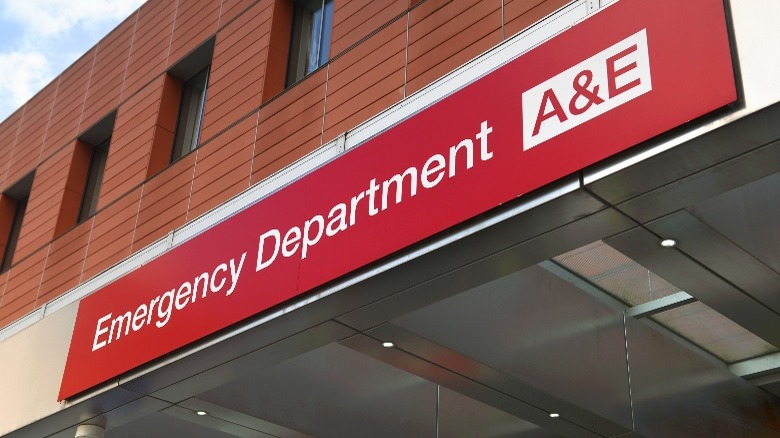When Should You Go To The Hospital For A Head Injury?
Head injuries happen when you damage the skin of your scalp, the bones of the skull, or even the brain itself (per Healthline). You can also damage the blood vessels and tissues in the head (via Johns Hopkins Medicine). Head injuries can range from mild — like a small bump to the head, scrape, or an external bruise — to more serious — like a traumatic brain injury. Head injuries commonly occur from accidents, falls, powerful shaking, and other traumas to the head.
Johns Hopkins Medicine says common kinds of head injuries include blood clots, bruises to the brain, concussions, and skull fractures. Concussions are quite common. According to a 2015 study published in the journal of Molecular and Cellular Neuroscience, an estimated 42 million people get concussions every year, though the reported number of incidents is actually lower because many people do not seek medical attention.
Penn Medicine News says that head injuries can increase your risk of dementia. That risk increases with the number of head injuries you sustain. Even minor head injuries — called subconcussive blows — could cause damage if they occur repeatedly (per Cleveland Clinic). Here's everything you need to know about when to seek medical attention for a head injury.
Signs that you should go to the emergency room
If you sustain a head injury, it is important to stop what you're doing and seek medical attention (per WebMD). Metro Health says that you should immediately go to the hospital if the head injury results in bleeding, disorientation, loss of consciousness, loss of coordination, seizure, nausea, or vomiting. Go directly to the hospital if the injury occurred from a high-speed accident. According to Mayo Clinic, other signs from a head injury that constitute a trip to the emergency room include dilated or unequally-sized pupils, persistent buzzing in the ears, fluid discharge from the nose or ears, or slurred speech.
The trouble with head injuries like concussions is that symptoms can be hard to identify. Symptoms also might not appear right away, taking a few hours or even a few days to display (via WebMD). It is important to monitor symptoms after sustaining a head injury. Following a head injury, someone might have difficulty focusing, a persistent headache, feel numbness, trouble getting to sleep or waking up, or mood swings. They might also have problems with reading, talking, vision, or writing. Seek emergency medical attention if any of the above symptoms appear hours or days after a head injury.


